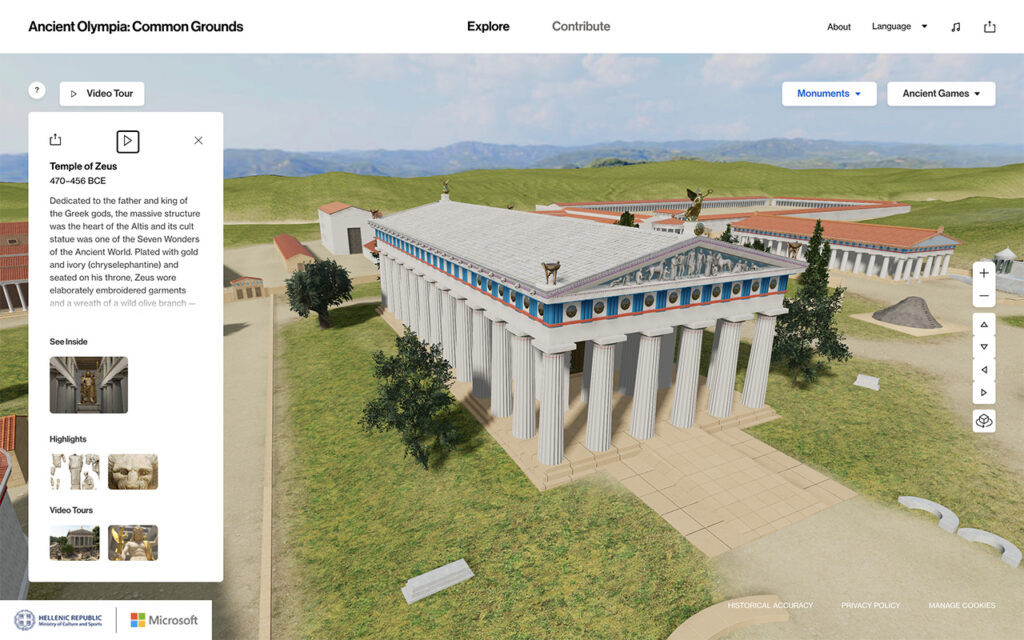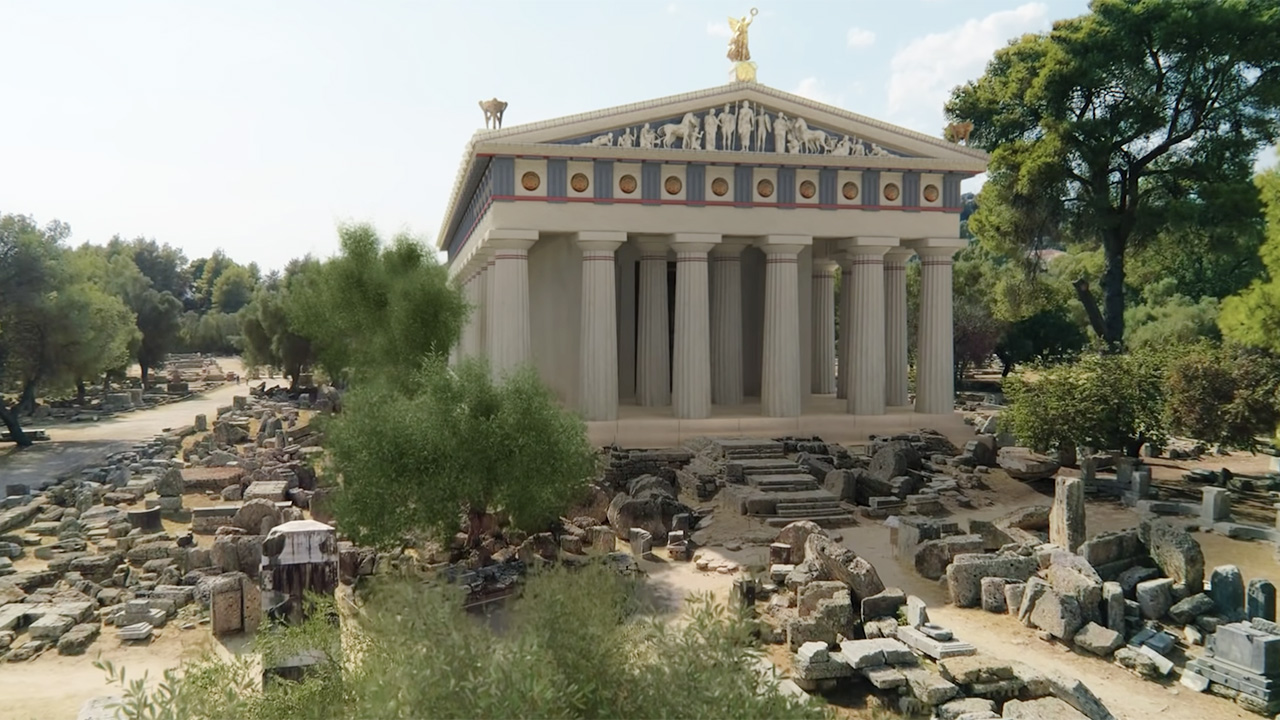In Greece, the Archaeological Site of Olympia in Greece stands as a reminder of Ancient Olympia’s contributions to global culture, sport, and history — the Olympic Games, Hellenic ideologies, mythology, and architecture. While experiencing Ancient Olympia’s original grandeur is impossible now, the site has recently been digitally revived, allowing visitors to view the sanctuary as it once was 2,000 years ago.
The Hellenic Ministry of Culture and Sports has partnered with Microsoft’s AI for Cultural Heritage initiative and innovation agency A_DA to recreate Ancient Olympia via a mixed reality exhibition, Ancient Olympia: Common Grounds. Featuring virtual reality (VR), augmented reality (AR), and 3D technologies, it’s accessible online and in-person at the Athens Olympics Museum.
What happened
Ancient Olympia: Common Grounds features 27 ancient Olympian monuments, including the original Olympic Stadium, Zeus and Hera’s respective temples, and the sculptor Phidias’ workshop. To accurately gather data, Iconem used cameras and drones to document the 27 monuments, which have been conserved and restored by the Hellenic Ministry of Culture and Sports. Microsoft’s AI then combined the photo data with archaeological data to create the digital models and landscapes.

Above: The project’s digital models were built on photo and archaeological data. Below: Common Grounds on desktop. Images: Microsoft
Online, visitors can explore various monuments from 360-degree perspectives using an onscreen trackpad, with each building backgrounded with historical information, audio commentary, and video tours. An accompanying mobile app can be downloaded to view the monuments in augmented reality at real world scale. Visitors to the onsite exhibition at the Athens Olympics Museum get to embark on an immersive, multi-sensory tour of 173 CE Olympia through Microsoft HoloLens 2 headsets.
Why it matters
Similar to the recent VR tour of Machu Picchu which opened at the Boca Raton Museum of Art in October, Ancient Olympia: Common Grounds allows travel-starved tourists to experience a global heritage site from their home. For an economy that’s historically been heavily reliant on tourism, Greece’s saw only seven million tourists in 2020, compared to the 33 million that arrived in 2019. Faced with a continuing recession, efforts to revive interest in tourism-reliant heritage sites like Olympia are critical.
Additionally, the project points to the continued endeavors on the part of cultural organizations to digitally preserve historically significant sites and artifacts, most often using creative technologies. While in-person, on-site experiences of these sites remain irreplaceable, the digitization of cultural heritage ensures the rich histories surrounding these monuments remain fresh and accessible to future generations.
What they said
“The digital preservation project, through the use of artificial intelligence and augmented reality technologies, implemented through the cultural sponsorship of Microsoft, promotes and highlights the unique and emblematic archaeological site of Ancient Olympia.” — Lina Mendoni, Hellenic Republic Minister of Culture and Sports
“The project to digitally revive Ancient Olympia is a stunning achievement in cultural heritage, bringing together humanity and cutting-edge technology to benefit the world and empower coming generations with new ways to explore our past.” — Brad Smith, President and Vice Chair, Microsoft



